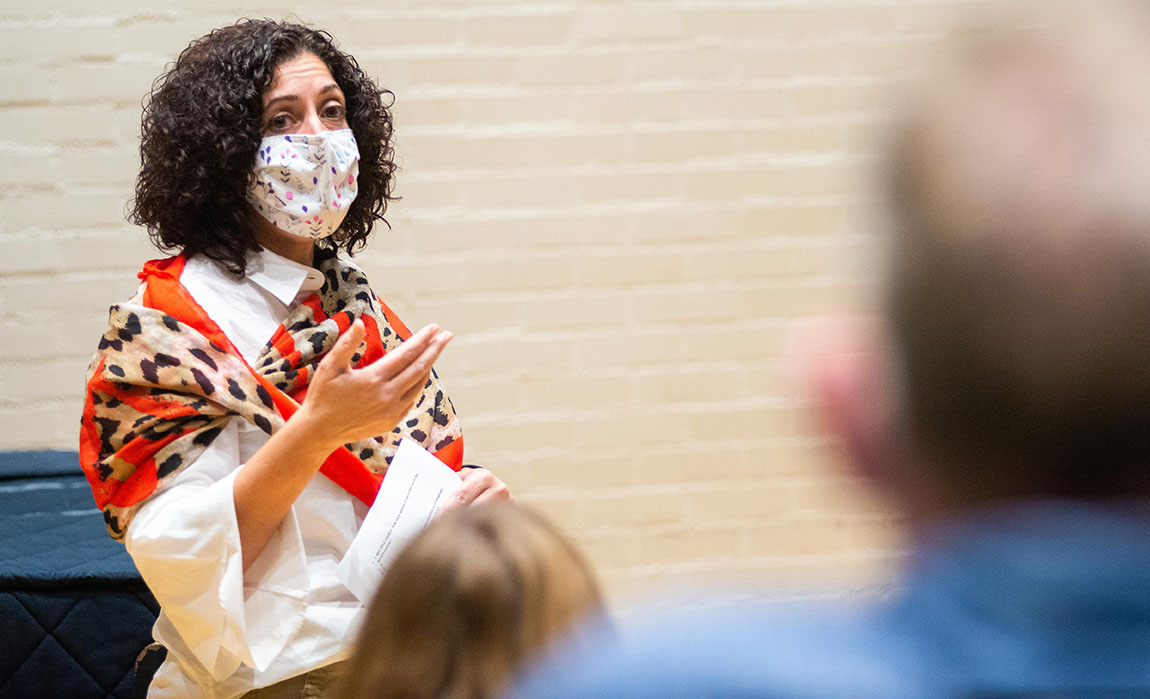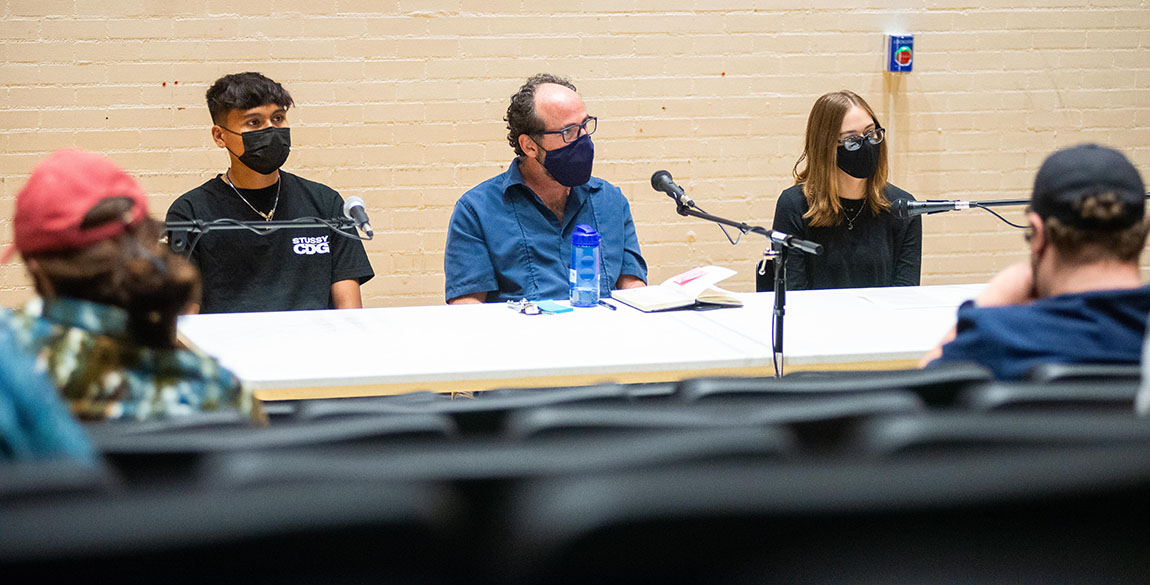Learning Through Film
The Department of Languages, Literatures and Cultures hosts a film festival in honor of Hispanic Heritage Month.By: Grace Oddo '22 Thursday, October 7, 2021 10:03 AM
 Assistant Professor of Spanish Mirna Trauger at the showing of "Cacu: A Change for Life." Photos by Joe Romano '23
Assistant Professor of Spanish Mirna Trauger at the showing of "Cacu: A Change for Life." Photos by Joe Romano '23Mirna Trauger, an assistant professor of Spanish, recalls the first night of the Latin American Film Festival as nothing short of gratifying. After nearly a year of living remotely, seeing a movie on a big screen with other people is a treat. As students gathered in the LC Commons to view the first film, El Desperatar de Camila (or Camila’s Awakening), Trauger could feel the sense of community radiating.
“Honestly, I think we’ve been craving these types of experiences,” she says. “There’s nothing like it.”
El Despertar de Camila, shown on September 14, was the first of five installments of the Latin American Film Festival. In collaboration with the Office of Multicultural Life, the Department of Languages, Literatures and Cultures organized this month-long festival to celebrate Hispanic Heritage Month. It’s the third iteration of the festival, which also took place in 2018 and 2013. The five independent films are from Chile, Panama, Mexico and the Dominican Republic.

Panelists Emilio Ramirez '24, Professor of Biology and Director of Sustainability Studies Rich Niesenbaum and Abigail Erickson '23 after Cacu: A Change for Life
The festival’s theme is “Pushing for Change: Perspectives on Social Justice,” which aligns with the goals of the department. “Our mission is to explore and understand the diversity of the human experience,” Trauger says. “By hosting this festival, we wanted the College community to get a glimpse of that diversity.”
The films deal with a variety of consequential topics—disability rights, migrant rights and environmental advocacy, to give a few examples. After each film, a discussion panel of Muhlenberg students, faculty and staff engage audience members in a Q&A. After the first film, Anna Riordan ’23 of Muhlenberg Disability Advocacy Group and Emely Minaya ’23, a Spanish major, were part of the panel. “The conversation was very lively and at times deep,” Trauger says. “I’m really glad that everyone stayed for that portion.”
The film festival concludes on October 12 with a showing of El Ombligo de Guie’dani (Guie’dani’s Navel). Trauger hopes that those who attend one of the screenings leave with a heightened desire to engage in important conversations—conversations that lay the groundwork for enacting social change. “These are films that are done from a different perspective—not an American perspective,” she says. “But that’s an important part of the conversations we want to have. And these conversations are a way to bring us closer and understand one another’s perspectives. We build bridges.”
